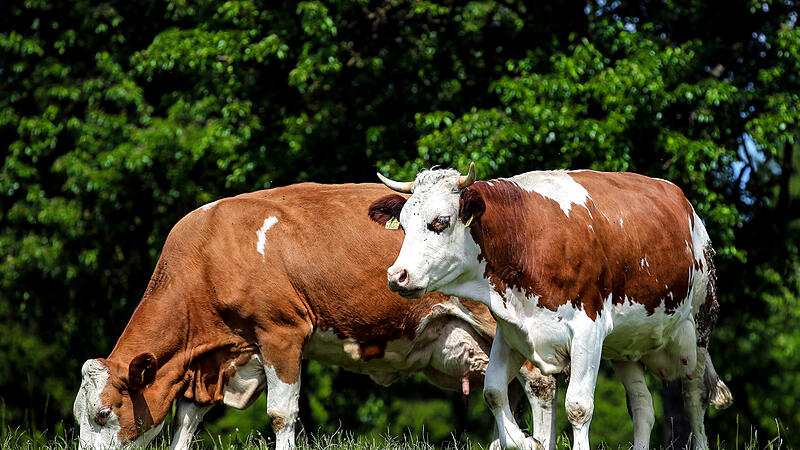Image: VOLKER WEIHBOLD
According to the Federal Environment Agency, agriculture was responsible for 11.3 percent of greenhouse gas emissions in Austria in 2022. Livestock farming in particular is often associated with global warming. Criticism is particularly directed at cattle farming: when they digest cattle, they produce the greenhouse gas methane, which has a strong global warming effect.
“Agriculture must not be portrayed as a scapegoat,” says Franz Waldenberger, President of the Chamber of Agriculture (LK) Upper Austria: Before the general assembly tomorrow, Wednesday, a working conference took place today, Tuesday, at which the topics of climate protection and animal husbandry were discussed.
Agriculture produces food for the population, but only causes a tenth of the total amount of greenhouse gases in Austria. It has also been possible to reduce emissions by 16 percent since 1990. “The share of agriculture is often overrated in social discussions. No animal husbandry is not an option. How else will the world’s population be fed?”
Michael Wöckinger, who is responsible for animal husbandry in the LK, emphasized that keeping and feeding would become more efficient. For example, with feed additives, digestion can be optimized and methane emissions can be reduced. Stocks have been reduced since 1990 and milk quantities have increased.
Work in cycles
According to figures from the organization “Our World in Data,” 900,000 cattle are slaughtered every day. A lower consumption of animal products would have positive effects on land use and the global greenhouse gas balance, as well as health aspects. Peer Ederer, a member of the Goal Sciences research alliance, countered the criticism at a press conference: Nitrous oxide and methane have a warming effect in the atmosphere. “How exactly and why it accumulates is unclear.” Impacts would have to be taken into account because the positive effects of animal husbandry would outweigh: Animal products are essential for a healthy diet. Only 20 percent of plant biomass is edible for humans: it is more efficient to feed this to animals. The farm animals would produce fertilizer.
Pastures have an indispensable effect on biodiversity, water management and soil hygiene, and livestock are needed to maintain them.
more from economics




